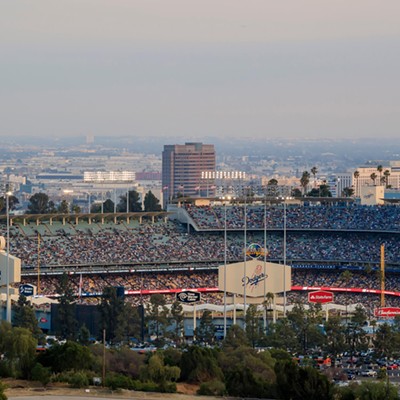Even in these days of political gridlock over the tiniest of matters, it is disheartening to witness the national disconnect on something as basic and popular as the minimum wage. Right-wing politicians, many of whom have nary a neuron to spare, are ignoring both common sense and the will of their constituencies to fight even the most-minute increase in the minimum wage. It's like their Jean-Luc Picard moment, "The line must be drawn here! This far, no further!"
Meanwhile, we have other people—some out of frustration, others out of sheer insanity—screaming for an increase in the minimum wage to $15 an hour for fast-food workers. (We'll deal with that nonsense at a later time.)
The minimum wage was first introduced (nationally) in the United States in 1938, as the Great Depression was dragging toward the end of its first decade. Like many other New Deal-era advances—rural electrification, the Works Progress Administration, Social Security—it was a good idea then and remains a good idea today.
Oh, I'm sure that among the howler monkeys who are chasing the Republican presidential nomination, we could find at least one who would argue against any of the advances that came during that period. If you want to drive from San Francisco to Sausalito, Rand Paul would suggest that you build the bridge yourself. Scott Walker would use the Army to crush union activities. And Marco Rubio would argue that the Tennessee Valley Authority is just a Communist plot to keep the Castro brothers in power in Cuba.
The purchasing power of a minimum-wage income peaked in 1968 when it was $1.60/hour. (Taking into account inflation and other factors over the decades, the equivalent today would be just over $10 an hour.) For the next couple decades, increases couldn't keep up with what was going on in the country. The late 1960s and early 70s saw high inflation pegged to the cost of Great Society programs and the Vietnam War. The mid- and late-'70s saw something called stagflation, where the economy sucked but inflation roared, anyway. Then came the 1980s, with the largest tax increase in American history.
(Republicans hate the fact that their patron saint of tax cutting, Ronald Reagan, presided over the largest tax increase ever, but it's true. It was a tax increase that was necessary to help pay for all of his military spending and was probably good for the country in the long run. We'd be in a much better place if George W. Bush had raised taxes to help pay for his military misadventures.)
As the increases in the minimum wage failed to keep up with inflation, purchasing power eroded. But then, during the 1990s, something truly sinister happened. Republican politicians began to attack the very concept of a minimum wage. Right about the time that the Pampered Rich were re-christened Job Creators (what a crock!), some Republicans began citing their faulty understanding of the faulty science of economics in an effort to eliminate the safety net altogether.
First of all, Economics is crap. And the study of Economics is crap. It's not a science. It doesn't use real math and there is no such thing as the "laws of economics." At best, economics has hunches or suggestions or maybe even guidelines. It's not like physics, where, if I dropped a bowling ball, it will fall toward the Earth every single time. In economics, if I were to drop a bowling ball, it might go up, it might go sideways or it might just hover in place. (I'm guessing that a certain percentage of economists, if asked what would happen if a bowling ball were dropped in a vacuum, might think that it would hover in place. Actually, the vacuum has nothing to do with gravity; the ball would still fall toward the Earth.)
I sincerely believe that an increase in the national minimum wage is long overdue. It should be somewhere in the $10/hr. range and what is really disturbing is that a majority of Democrats and Republicans are both in favor of it while a minority of Republican politicians are using flawed thinking (or no thinking, whatsoever) to hold it hostage to their petty dogma.
I seriously have difficulty understanding why any politician would be against an increase in the minimum wage. If a majority of your constituents (who are also in your political party) are in favor of something that, in and of itself, should be reason to vote for it. Then, you add the fact that a majority of all people, including those in the other political party, favor it and it becomes a no-brainer. (Insert your own joke here.)
Here's a little mental exercise for you. There are five states in the U.S. that have no minimum-wage laws. I'll bet that the most screaming liberal and the most hard-hearted conservative could both guess that they are Mississippi, Louisiana, Alabama, Tennessee and South Carolina. That should tell you something. (Georgia, which sits in the middle of that mess, does have a minimum-wage law, but the minimum wage in Georgia is—ahem—$5.15 an hour.)
Maybe somebody in the crowded GOP field might want to set himself apart by suggesting a boost in the minimum wage. That would probably be more effective than screaming, "I hate Obama more than anybody else!"







